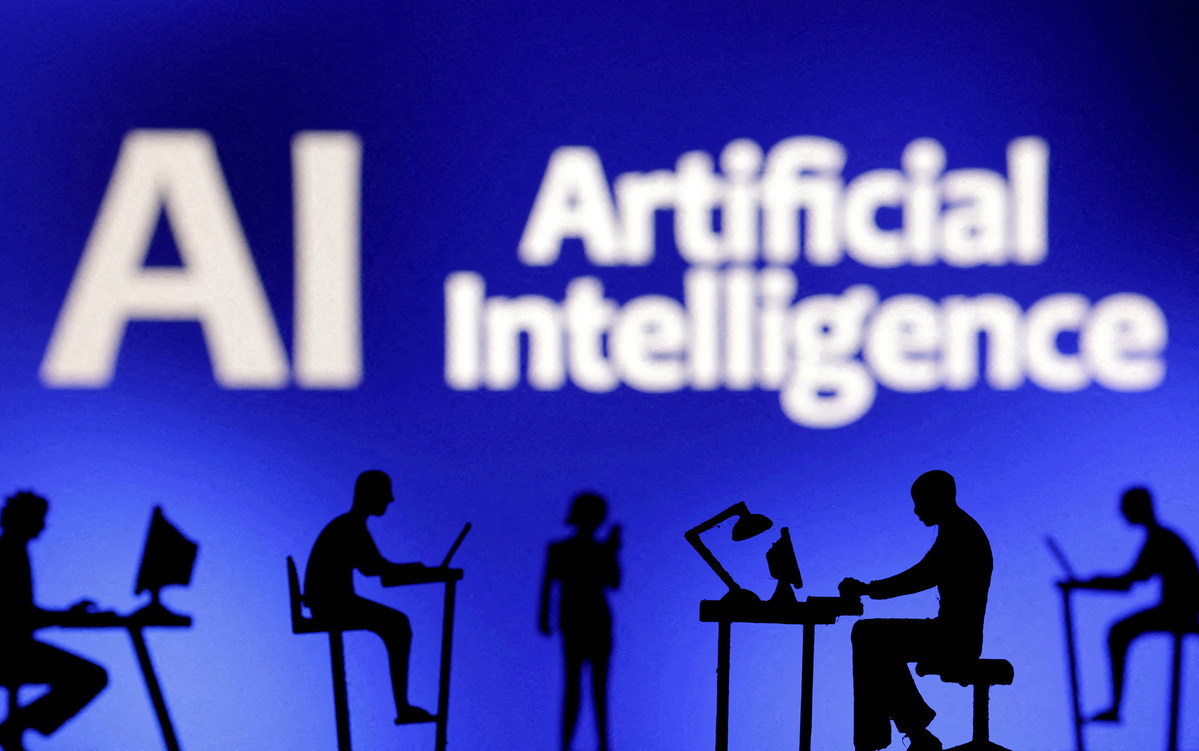AI has created a dilemma in higher education


In the dynamic interplay between technology and academia, Fudan University's recent decision to implement stringent regulations on the use of artificial intelligence in undergraduate dissertations has ignited a public debate.
These regulations, encapsulating six prohibitions, underscore the need to safeguard academic integrity and nurture original thinking. As a professor, I have delved into the nuances of the regulations, exploring their rationale, implications and the broader ethical and normative challenges they raise within the higher education landscape. And by drawing comparisons with international practices, I aim to provide concrete suggestions for managing AI usage in higher education.
Double-edged sword of AI in education
The rapid evolution of AI technology has revolutionized various sectors, including education. It presents unprecedented opportunities for advancing learning, enhancing research efficiency and refining data analysis. However, like any powerful tool, AI also poses risks. Its misuse, particularly in academic writing, jeopardizes the sanctity of original research and undermines the fundamental essence of academic pursuit. Thus, Fudan University's regulations emerge as a necessary corrective measure to address this burgeoning concern.
Several countries and higher education institutions globally, too, have been grappling with the implications of AI in academic writing and research. For instance, several universities in the United Kingdom have issued guidelines, emphasizing the importance of original work and warning against the misuse of AI in academic writing. Some institutions have even introduced software to detect AI-generated content, ensuring the authenticity of submitted research work.
Universities in the United States have taken a more nuanced approach, encouraging the responsible use of AI while maintaining rigorous standards for academic honesty. Institutions such as Harvard and Massachusetts Institute of Technology have integrated AI literacy into their curriculums, fostering critical thinking and ethical considerations in technology use.
And Australian universities have implemented strict penalties for plagiarism, including AI-generated content. They have also emphasized the importance of fostering a culture of integrity and ethical conduct among students.
Ethics and norms basis of academic integrity
Fudan University's regulations are grounded in a commitment to ethics and norms in academic endeavors. Ethics, as the guiding principle of behavior, ensure adherence to moral standards, fairness and conscience. Norms, on the other hand, offer concrete guidelines for conduct in specific situations.
Together, they form the cornerstone of academic integrity, preserving the authenticity and impartiality of research findings. By prohibiting the use of AI in generating or altering raw data and directly producing text for dissertations, Fudan University aims to uphold the highest standards of academic honesty.
The rationale behind Fudan's regulations stems from the preservation of academic integrity and the cultivation of independent thinking. They address a pressing issue: the decline in students' writing and critical thinking skills due to over-reliance on AI. By setting clear boundaries, Fudan seeks to steer students toward more authentic and original contributions to knowledge.
Innovation must not compromise integrity
However, as with any regulatory framework, Fudan University's regulations have their limitations. Critics argue that they may stifle innovation and creativity by placing restrictions on AI's use. While this concern is valid, it overlooks the fact that innovation should not compromise academic integrity. Additionally, the regulations do not prohibit all uses of AI; they merely discourage its misuse.
Drawing insights from international practices, the following are some suggestions for managing AI usage in higher education:
* Higher education institutions should integrate AI literacy into their curricula, fostering critical thinking skills and promoting responsible technology use;
* Institutions should develop comprehensive ethical guidelines and conduct regular training sessions on academic integrity and professional ethics;
* Universities should consider implementing advanced software to detect AI-generated content, in order to ensure the authenticity of the submitted work. Additionally, clear policies on plagiarism and academic misconduct should be enforced rigorously;
* While regulations are necessary, institutions should also encourage the exploration of AI's legitimate applications in education, fostering a culture of innovation within ethical boundaries;
* And higher education institutions should collaborate internationally to share best practices, ethical guidelines, and regulatory frameworks concerning AI use in academia.
Striking balance between innovation and regulation
The debate surrounding Fudan University's regulations highlights the need to strike a delicate balance between innovation and regulation in higher education. Innovation drives progress and is essential for knowledge advancement. Regulation, however, ensures that innovation occurs within ethical and normative boundaries, preserving the integrity of academic endeavors.
To achieve this balance, higher education institutions must adopt a holistic approach. They should encourage the exploration of AI's legitimate applications while rigorously enforcing ethical and normative standards. This involves integrating AI literacy into curricula, fostering critical thinking skills, and promoting a culture of integrity through moral education and professional ethics training.
Fudan University's regulations resonate beyond academia, touching on broader ethical and normative considerations in the age of AI. They prompt reflection on the role of technology in shaping human behavior and values. As AI increasingly permeates various aspects of our lives, it is crucial to establish ethical guidelines and regulatory frameworks to ensure its responsible use.
The regulations underscore the importance of individual responsibility in maintaining ethical standards. While institutions play a pivotal role in setting norms and enforcing regulations, individuals must also take ownership of their actions and uphold ethical principles in daily life.
In conclusion, Fudan University's regulations on the use of AI in undergraduate dissertations, along with international perspectives and practices, provide valuable insights into managing the ethical and normative challenges posed by technology in higher education.
Regulations lead to culture of integrity
While regulations have limitations, they serve as a vital means of fostering a culture of integrity, encouraging innovation within ethical boundaries, and promoting responsible technology use. As we navigate the complexities of the AI era, higher education institutions must continue to adapt and evolve, striking the right balance between embracing technological advancements and preserving the core values of academia.
This ongoing endeavor requires a commitment to ethical and normative considerations, guiding our technological pursuits toward a brighter, more responsible future.
The author is a professor at the School of English Studies, Tianjin Foreign Studies University.
The views don't necessarily reflect those of China Daily.
If you have a specific expertise, or would like to share your thought about our stories, then send us your writings at opinion@chinadaily.com.cn, and comment@chinadaily.com.cn.


































